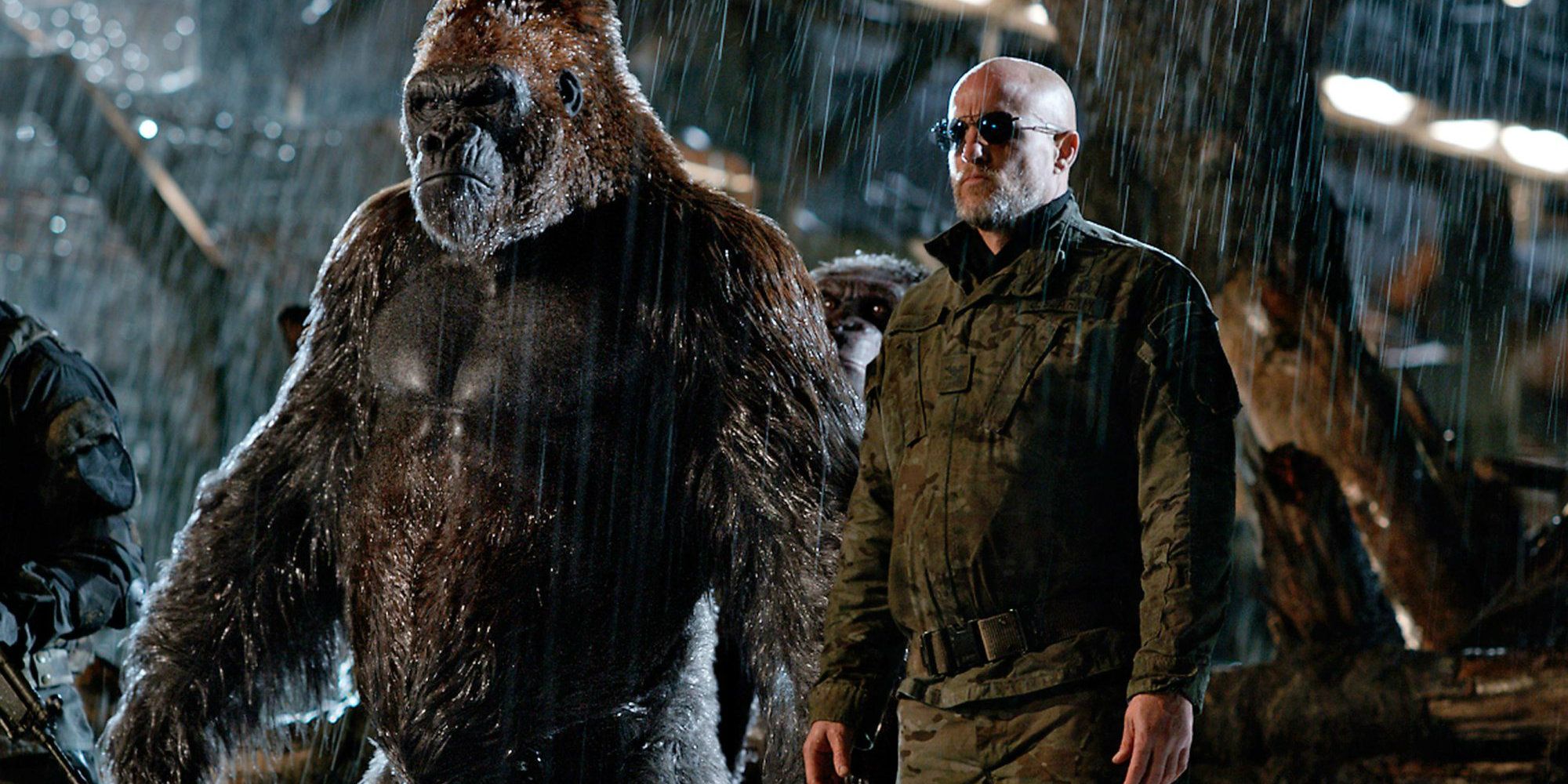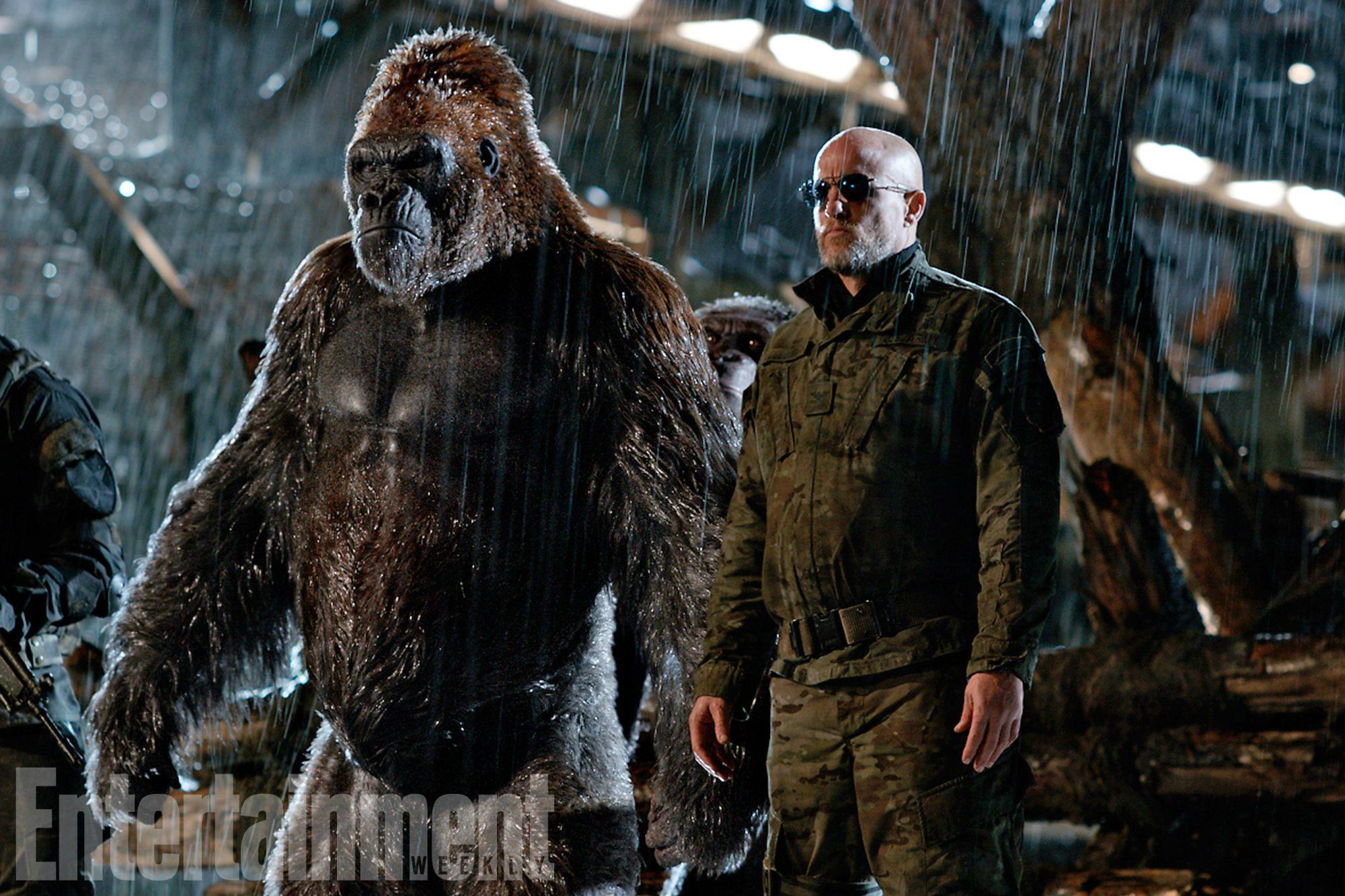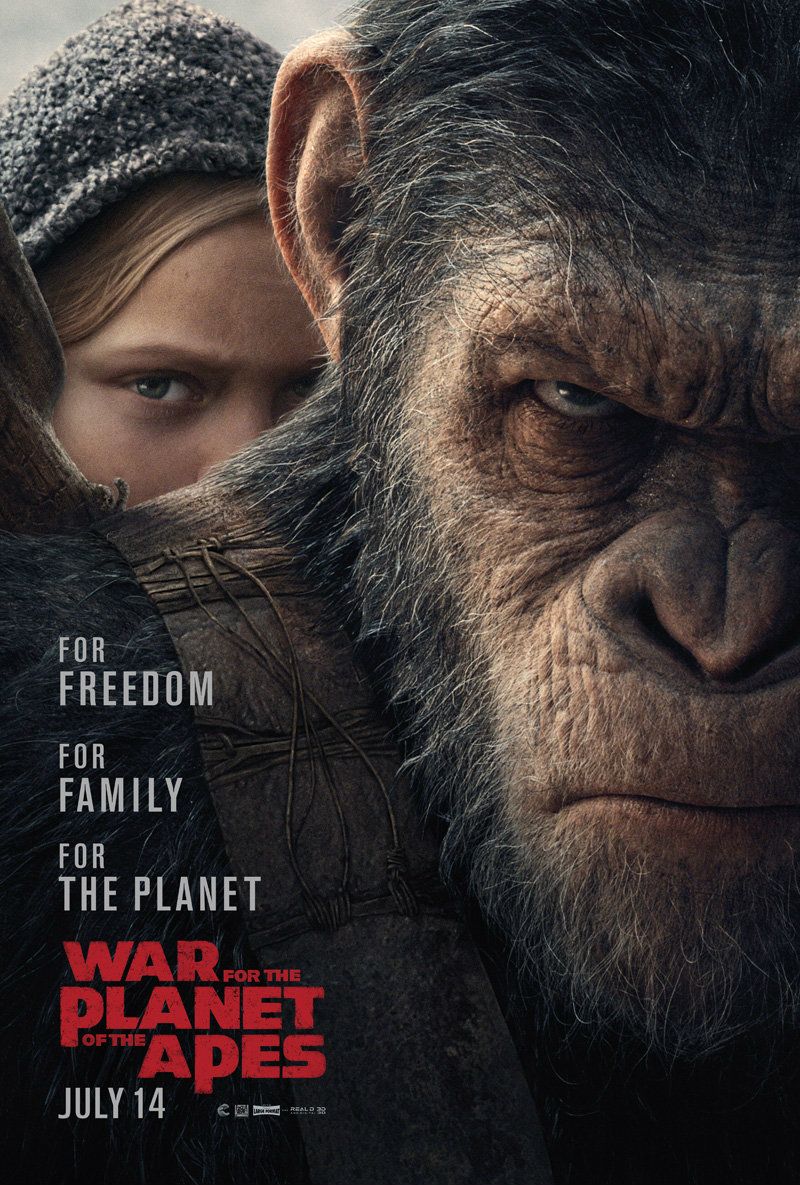This year's War for the Planet of the Apes took inspiration from several noteworthy, classic films. Building on Rise of the Planet of the Apes (which tells the origin story of Caesar the ape) and Dawn (which shows Caesar becoming a leader of his people in their escalating conflict with humans), War finds Caesar and his people engaged in full-on combat with an army of humans led by a character known as The Colonel, played by Woody Harrelson. The war leads to devastating losses for the apes, and the story then becomes a mythic quest, as Caesar sets out to find the Colonel and get his revenge.
Last month's War for the Planet of the Apes trailer sounded echoes of Apocalypse Now, in Woody Harrelson's Kilgore-like character (with just a dash of Kurtz) and in some of the imagery and the teasing of a dark quest. Director Matt Reeves may have been inspired by Francis Ford Coppola's legendary war film, but that wasn't the only movie that fed into the director's vision as he put together the third movie in the modern Planets of the Apes series.
While preparing War for the Planet of the Apes, Reeves and screenwriter Mark Bomback had time to immerse themselves in film history and they took advantage by literally screening movie after movie in search of inspiration. Reeves revealed in an interview with EW which films he and Bomback soaked up as they pieced their story together, and the list is a grab-bag of Westerns, war films and Biblical epics largely from the '50s and '60s, the golden age of Hollywood epics:
“We watched Bridge on the River Kwai. We watched The Great Escape. We watched Biblical epics, because I really felt like this movie had to have a Biblical aspect to it. We watched Ben-Hur, The Ten Commandments. We didn’t go, like, ‘Let’s take a little bit of this, a little bit of that.’ When you surround yourself with something that feels emotionally right, there are connections that make sense to you that somebody else might not see…[the films] informed the vibe we felt about this thing.”
Reeves notes that the relationship between Caesar and the Colonel was directly inspired by the dynamic between the Alec Guinness and Sessue Hayakawa characters in Bridge On the River Kwai. Much of Bridge is consumed with the push-and-pull between Guinness' proud British officer and Hayakawa's equally-proud prison camp commander. The two men may be in conflict, but they each live by an ironclad code and come to respect one other.
Reeves also mentions the Clint Eastwood Western Outlaw Josey Wales as a major inspiration on his film's quest narrative. In Josey Wales, Eastwood plays a peaceful man who joins up with a group of pro-Southern guerrilla fighters to avenge his family, who were murdered by pro-Union thugs. When the war ends and the guerrillas surrender, Eastwood heads West and is joined by a small group of companions, but his hopes for a peaceful life are dashed as he is pursued by bounty hunters. In War for the Planet of the Apes, a battle-hardened Caesar sets off on his own quest accompanied by a diverse group, including a human war orphan (Amiah Miller) and a chimp named Bad Ape (Steve Zahn).
The "Biblical aspect" referred to by Reeves comes about as Caesar ascends to mythic status among his people. Reeves says "You can imagine the story of him would inspire religions." It sounds super-serious, but we've been assured that there's plenty of humor along the way as well. The film also features many more apes than previous installments in the series. We'll see how all these diverse elements come together when War for the Planet of the Apes arrives this summer.
NEXT: 2017 Summer Movie Preview - The 20 Films to See
Source: EW



